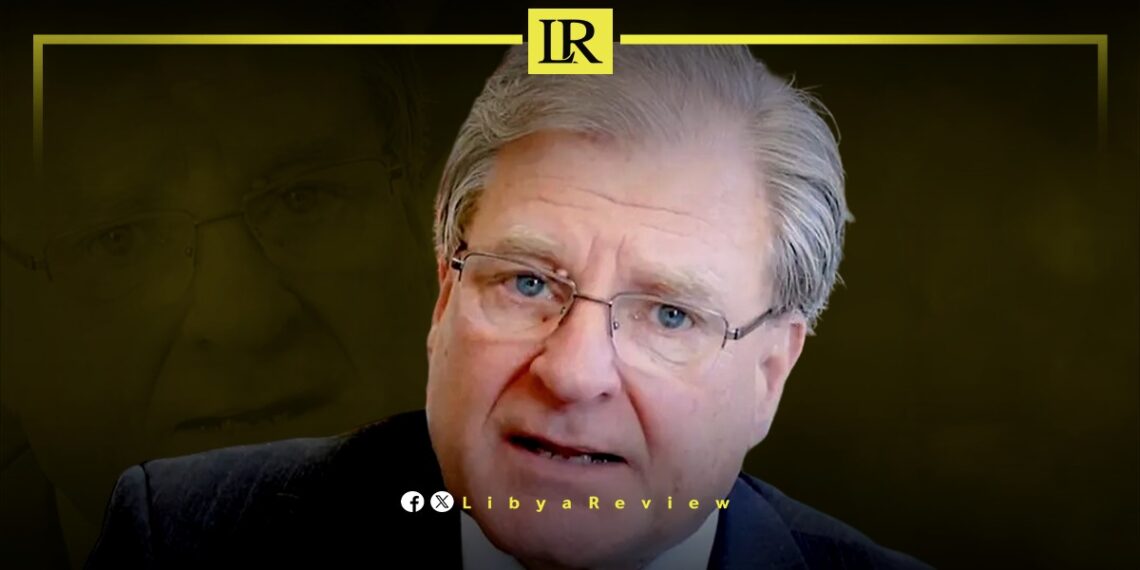Richard Norland, the US Special Envoy to Libya, expressed concern over the growing frustration among the Libyan population due to the ongoing Central Bank crisis. In a televised statement, Norland highlighted how the crisis underscores the deep divisions within the country and further exacerbates the economic turmoil affecting Libyans.
Norland emphasized that the crisis presents an opportunity to correct Libya’s political and economic trajectory through decisions that ensure transparency, accountability, and fair distribution of resources. He urged political leaders to take responsibility, recover from past failures, and establish a roadmap that leads to elections.
The Central Bank crisis began in August when Presidential Council Head Mohamed Al-Mnifi moved to replace Central Bank Governor Al Siddik Al Kabir, at the request of the outgoing Government of National Unity (GNU) led by Prime Minister Abdel-Hamid Dbaiba. This decision prompted eastern authorities to halt oil exports in protest.
Norland stressed the urgent need for a transitional government to restore transparency and accountability, which are critical to overcoming Libya’s political stalemate and deepening economic crisis. In an interview with Al Jazeera, he underscored the importance of forming a new government to lay the foundation for free and transparent elections, essential for restoring stability.
Libya remains divided between two rival governments: the UN-recognized administration in Tripoli, backed by Turkey, and the Benghazi-based government under General Khalifa Haftar, supported by Russia. The political struggle over the Central Bank has severely impacted Libya’s energy sector, with oil production dropping by nearly 70% due to an export ban imposed by Haftar. Additionally, the country faces partial isolation from the global “SWIFT” payment system, threatening its ability to collect oil revenues and import essential goods like food, medicine, and fuel.
The US envoy also highlighted how the opaque management of Libya’s oil revenues has contributed to instability. He called for a fair distribution of the nation’s wealth to benefit all Libyans, not just select groups or individuals.
Expressing concern over the growing frustration among Libyans, Norland attributed the political deadlock to those who deliberately preserve the status quo for personal gain. He pointed to the lack of transparency in oil exports and emphasized that Libya’s oil wealth should serve its people, rather than being used as a political tool.
Norland also raised alarm about the presence of foreign mercenaries from Russia, Chad, Syria, and the Sahel region, warning that their involvement undermines Libyan sovereignty and hampers political and security stability. Additionally, he linked the crisis in Sudan to worsening conditions in Libya, contributing to increased refugee flows and internal tensions.
The US envoy called on the international community to take a more active role in addressing Libya’s crisis, urging global financial institutions to resolve concerns about the management of Libya’s Central Bank and to facilitate a UN-led dialogue on these issues. Despite US recognition of Dbaiba’s GNU as the legitimate government, Norland reiterated the need for a transitional government to ensure a stable and inclusive electoral future for Libya.


